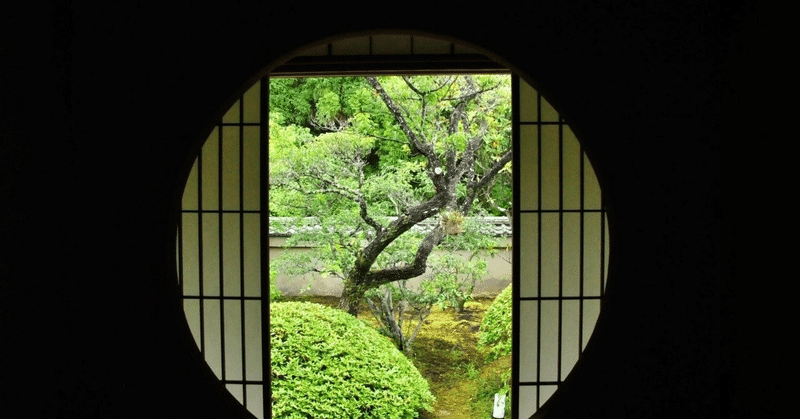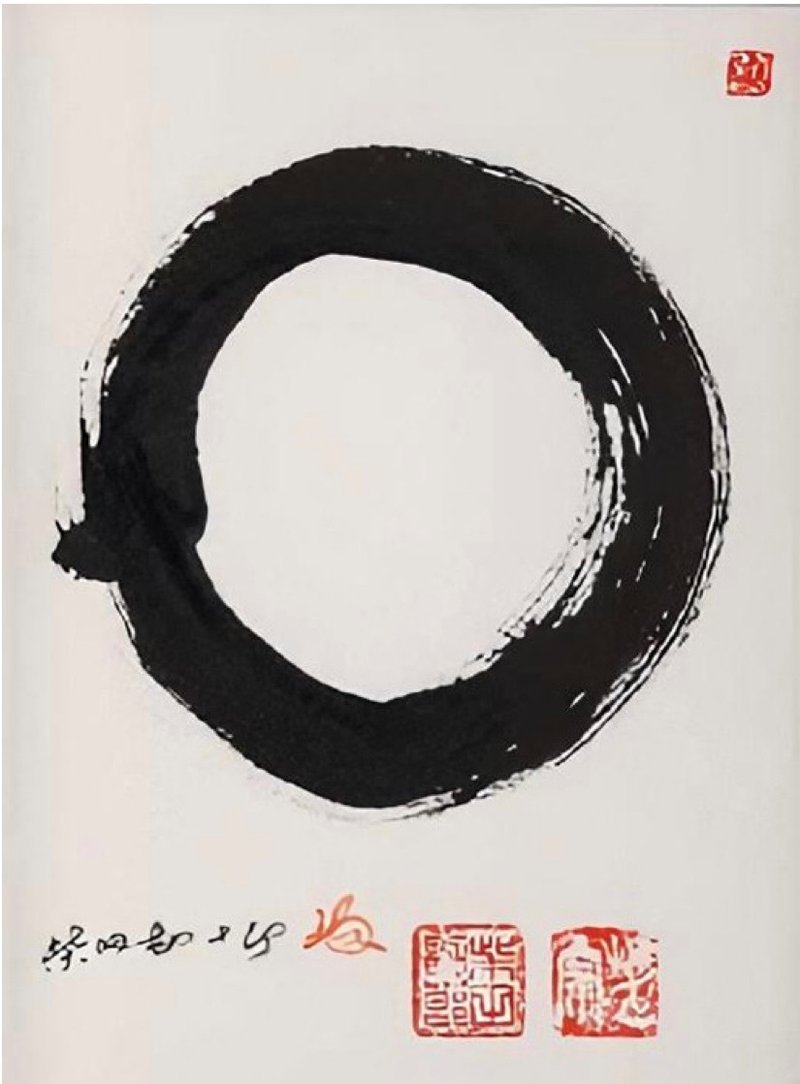
About the ZEN word ‘EN-SOU’
I would like to write about a Zen word written on a hanging scroll, which I lightly touched on in the previous article, "Do Deer Represent Autumn in Japan?”.
KAKEJIKU hanging in the tokonoma (alcove) of Japanese tea rooms are usually written in BOKU-SEKI (characters written with ink and a brush). Most of them are Zen words or the upper or lower phrases of waka poems.
In the early days when the tea ceremony was introduced to Japan, Chinese (formerly Tang Dynasty) paintings were the main medium. Murata Jhukoh was given this ink brushstroke by a very important monk named Ikkyu Soujun, known as "Ikkyu-san," and decided to hang it in his tea room. Later, Rikyu proposed that the scrolls should be hung in the tea ceremony room, and so they are still hung in the tea ceremony room today.
○ about “EN-SOU”
Enso is a Zen calligraphic style in which a circle is drawn with a single stroke.
It is also called "Ichien-sou" or "Ensouzu.

It is said to be a symbolic representation of enlightenment, truth, buddhahood, and the universe as a whole in a circular shape, but the interpretation is left to the viewer.
It is also used to mean "a window through which one's mind is reflected. It is often written on the top of Buddhist tablets and stupas of the Rinzai sect of Zen Buddhism.
Zen words can be read in different ways to find different meanings.
In addition to what Wikipedia says
Some people say that the circle (=“EN”) has neither beginning nor end and represents eternity.
Personally, I think this is not a "character" but a "picture," but it is a line of characters called "BOKU-SEKI”.
As a side note, Zen words are written in literature by high priests of Zen Buddhism who risked their lives in ascetic practice to write down the teachings they had acquired. There are also documents that contain Zen questions and answers themselves.
Other Zen words that I often see on scrolls in tea rooms are as follows.
日日是好日 Nichinichi Kore Koujitsu
知足 Chisoku
松に古今色無 Matsu ni kokon iro nashi
喫茶去 Kissako
和敬清寂 Wakei-seijaku
It would be fun to look up these meanings on your own, so I won't try to give an interpretation here…
mica♡matcha
この記事が気に入ったらサポートをしてみませんか?
